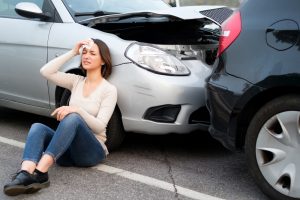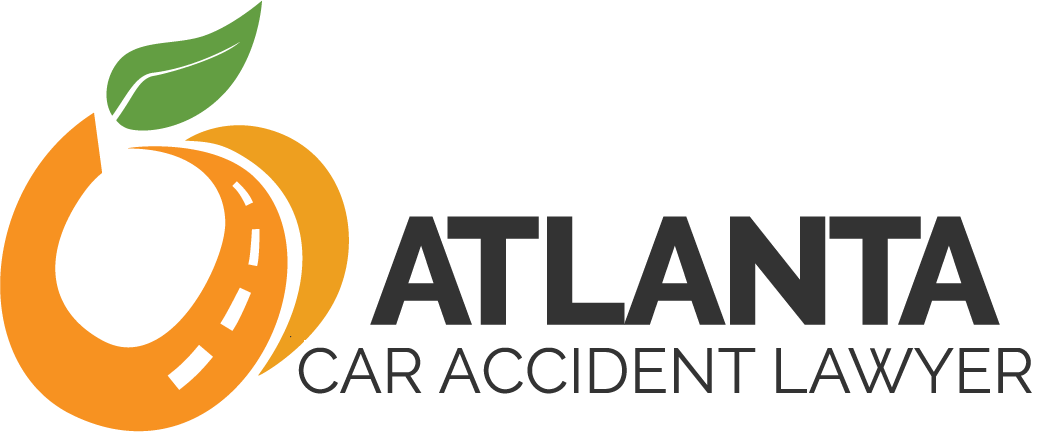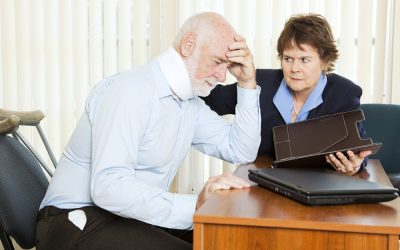
Dizziness is a common, but scary, symptom after a car accident. It may mean you have whiplash, a concussion, or some other kind of injury. Dizziness and vertigo (a feeling that the room is spinning) can also be signs of a severe condition that should be treated right away. Because there are many possible reasons for dizziness, it is best to see a doctor if you are feeling dizzy after an accident.
Most of the time, dizziness is a signal that the accident has caused neck or head injuries. This is because the impact from an accident can jolt your head suddenly back and forth. This can injure the bones in your spine, your neck muscles and ligaments, your inner ear or your blood vessels. You may also have hit your head on surfaces inside the car. When you feel dizzy, you may have poor balance that increases your risk of falling and hurting yourself even more.
What causes dizziness?
Dizziness is a symptom of a variety of injuries that all have somewhat different causes and treatments. Some of these injuries typically don’t show up right away, but develop in the first several days after the accident. Some typical causes of dizziness after a car accident include:
- Whiplash. Whiplash is especially common after rear-end collisions. It is caused when an impact “whips” your head suddenly back and forth, damaging neck bones (vertebrae) and the protective discs between them, muscles, or tendons. Whiplash is painful, but it can also cause dizziness if it affects the nerves in your spinal column that tell your brain how to control your posture. Treatments for whiplash usually also take care of the dizziness.
- Concussions and traumatic brain injuries. An impact such as hitting your head on the windshield can cause a brain injury ranging from a mild concussion to a life-altering traumatic brain injury. Brain injuries can lead to swelling and can cause dizziness, confusion, and other issues. All brain injuries should be treated as potentially serious.
- BPPV, also known as benign paroxysmal positional vertigo. Nerve endings connected to the crystals in your inner ear send signals to your brain, explaining what position your head is in. When an accident jolts the crystals out of place, you feel dizzy, and the dizziness gets worse with certain movements. Head maneuvers are the usual treatment for BPPV.
- Blood vessel damage. Damaged blood vessels can prevent your brain from getting as much blood as it needs. Typically, blood vessel damage causes aching or throbbing pain in the back of your head that gets worse as time goes on. Blood vessel damage requires emergency treatment.
What should I do if I feel dizzy?
Dizziness can be a symptom of many things, so it’s best to see a doctor as quickly as possible. Your doctor will examine you, ask questions, and may order additional tests to give you a proper diagnosis. There are, however, a few simple things you can do at home to keep yourself as safe and comfortable as possible:
- Remember that dizziness can affect your balance. To reduce the chance that you will fall and hurt yourself more, hold onto railings when going up and down stairs. Use a cane if you need additional stability.
- Sit down whenever you feel dizzy.
- Don’t bicycle, run or do other activities that put you at additional risk.
- Don’t drive. You could cause another accident that injures other people as well as yourself.
Finally, schedule an appointment with a personal injury lawyer. A lawyer can explain your rights and can help you recover money from an insurance company or a car accident lawsuit in Atlanta Georgia. Insurance companies are not eager to pay out claims for dizziness injuries, and we have found that seeing a lawyer is often the single best thing you can do to protect yourself financially after an accident. A lawyer can build a strong case and negotiate for you, freeing you to focus on your recovery.
Talk to an Atlanta Car Accident Lawyer for Free
Our lawyers are ready to help you recover money for your car accident injuries. We keep our rates affordable: you won’t pay anything unless we win you money. Let us give you a free consultation to talk about your injuries and help you decide what you should do next—with no obligation. Call us at (404) 341-6555 or fill out the form to the right to get your free consultation today.





